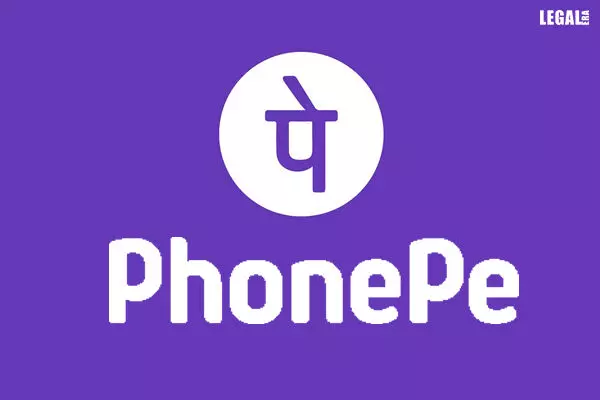- Home
- News
- Articles+
- Aerospace
- Artificial Intelligence
- Agriculture
- Alternate Dispute Resolution
- Arbitration & Mediation
- Banking and Finance
- Bankruptcy
- Book Review
- Bribery & Corruption
- Commercial Litigation
- Competition Law
- Conference Reports
- Consumer Products
- Contract
- Corporate Governance
- Corporate Law
- Covid-19
- Cryptocurrency
- Cybersecurity
- Data Protection
- Defence
- Digital Economy
- E-commerce
- Employment Law
- Energy and Natural Resources
- Entertainment and Sports Law
- Environmental Law
- Environmental, Social, and Governance
- Foreign Direct Investment
- Food and Beverage
- Gaming
- Health Care
- IBC Diaries
- In Focus
- Inclusion & Diversity
- Insurance Law
- Intellectual Property
- International Law
- IP & Tech Era
- Know the Law
- Labour Laws
- Law & Policy and Regulation
- Litigation
- Litigation Funding
- Manufacturing
- Mergers & Acquisitions
- NFTs
- Privacy
- Private Equity
- Project Finance
- Real Estate
- Risk and Compliance
- Student Corner
- Take On Board
- Tax
- Technology Media and Telecom
- Tributes
- Viewpoint
- Zoom In
- Law Firms
- In-House
- Rankings
- E-Magazine
- Legal Era TV
- Events
- Middle East
- Africa
- News
- Articles
- Aerospace
- Artificial Intelligence
- Agriculture
- Alternate Dispute Resolution
- Arbitration & Mediation
- Banking and Finance
- Bankruptcy
- Book Review
- Bribery & Corruption
- Commercial Litigation
- Competition Law
- Conference Reports
- Consumer Products
- Contract
- Corporate Governance
- Corporate Law
- Covid-19
- Cryptocurrency
- Cybersecurity
- Data Protection
- Defence
- Digital Economy
- E-commerce
- Employment Law
- Energy and Natural Resources
- Entertainment and Sports Law
- Environmental Law
- Environmental, Social, and Governance
- Foreign Direct Investment
- Food and Beverage
- Gaming
- Health Care
- IBC Diaries
- In Focus
- Inclusion & Diversity
- Insurance Law
- Intellectual Property
- International Law
- IP & Tech Era
- Know the Law
- Labour Laws
- Law & Policy and Regulation
- Litigation
- Litigation Funding
- Manufacturing
- Mergers & Acquisitions
- NFTs
- Privacy
- Private Equity
- Project Finance
- Real Estate
- Risk and Compliance
- Student Corner
- Take On Board
- Tax
- Technology Media and Telecom
- Tributes
- Viewpoint
- Zoom In
- Law Firms
- In-House
- Rankings
- E-Magazine
- Legal Era TV
- Events
- Middle East
- Africa
Bombay High Court rejects interim relief to PhonePe over trademark infringement allegations against Postpe

Bombay High Court rejects interim relief to PhonePe over trademark infringement allegations against Postpe
The Court ruled that there seemed no similarity between the two marks
The Bombay High Court has rejected a plea for interim relief to PhonePe in a plea filed against Resilient Innovations, creators of Postpe alleging trademark infringement over the word ‘Pe’.
In the PhonePe Private Limited vs Resilient Innovations Pvt Ltd case, the single-Judge bench of Justice Manish Pitale stated that the issue of exclusivity over the word ‘Pe’ was a matter of trial and could not be adjudicated at an interim stage. He added that as regards the marks, 'Phone' and 'Post', there seemed no similarity between them.
Holding that no strong case was made out for relief, the Judge observed, “At this stage, the court is unable to agree with the plaintiff that gullible or uneducated persons or even educated and aware customers would be confused between the services of the rival parties. The central idea sought to be conveyed by the two rival trademarks taken as a whole is distinct, particularly when the rival pleadings are appreciated.”
The plaintiff, PhonePe had stated registering the trademark ‘Pe’ in Devanagari script in Hindi in 2014.
It provided mobile phone applications that facilitated financial transactions through online and offline payment modes. Explaining that the reason for registering the mark ‘Pe’ was because in Hindi it meant ‘on’, it pleaded that use of the term ‘Postpe’ would affect its business.
On the other hand, the defendant company, Resilient, clarified that the term ‘Postpe’ was coined from the concept of postponed payment indicating that the customers could buy now and pay later. Pleading that the service was distinct from PhonePe, it argued that PhonePe could not claim exclusivity on part of its trademark ‘pe’ as it was a matter of trial.
Earlier, even the Delhi High Court had held the same in a pending suit filed by PhonePe against Resilient for its mark BharatPe.
Thus, while dismissing the interim application, Justice Pitale concluded, “It appears that the endeavour of the plaintiff is to claim that 'pe' may connote 'payment' but, in its registered trademark, it refers to the colloquial Hindi term 'on', thereby alleging that the defendant by using 'pe' has sought to come as close as possible to the registered trademark of the plaintiff.”
Senior Advocates Ravi Kadam and Venkatesh Dhond with Advocates Rohan Kadam, Thomas George, Tanvi Sinha, Navankur Pathak, and Neeti Nihal briefed by Saikrishna & Associates appeared for PhonePe.
Resilient was represented by Senior Advocates Virag Tulzapurkara and Sharan Jagtiani with advocates Mohit Goel, Siddhant Goel, Abhishek Kotnala, Aditya Goel, Deepankar Mishra and Karmanya Dev Sharma from Sim & San Attorneys at Law and Nishad Kulkarni, Aasif Navodia, and Khushboo Jhunjhunwala from Khaitan & Co.



